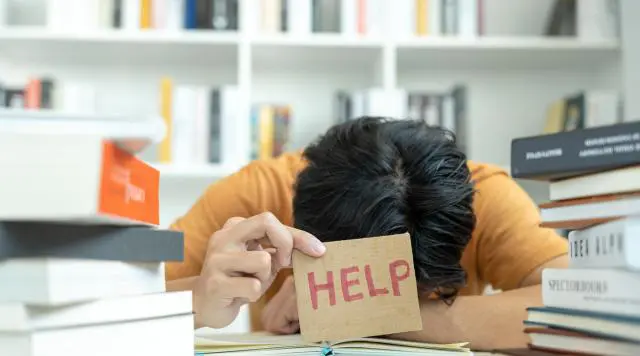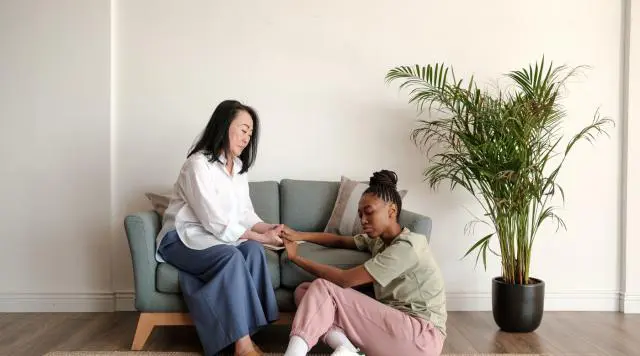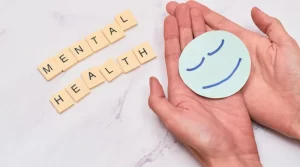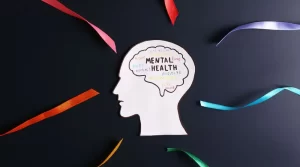Anxiety relief is a process aimed at reducing and managing the feelings of anxiousness and unease that individuals may experience. It involves various strategies and techniques that can help calm the mind and body, ultimately promoting a sense of relaxation and well-being.
Table of Contents
- Introduction to Anxiety Relief
- What is Anxiety
- Benefits from Relieving Anxiety
- Problems and Challenges from Anxiety
- Strategies that Provide Anxiety Relief
- Deep Breathing
- Mindfulness Meditation
- Progressive Muscle Relaxation
- Visualization
- Grounding Techniques
- Exercise
- Limit Caffeine and Sugar
- Get Adequate Sleep
- Maintain a Healthy Diet
- Seek Social Support
- Limit Exposure to Stressors
- Practice Gratitude
- Cognitive Behavioral Therapy (CBT)
- Medication
- Self-Care
- Calm Anxiety by Accepting It
- Do I Need Treatment for Anxiety?
- Things to Avoid to Help with Anxiety, Fear, and Panic
- The Power of Positive Affirmations
- Enhancing Your Experience: Anxiety Relief with Genesis Wellness Clinic
- Frequently Asked Questions about Anxiety Relief
- What is anxiety relief?
- What are some common anxiety relief techniques?
- How long does it take for anxiety relief techniques to work?
- Can anxiety be completely cured through anxiety relief techniques?
- Are medications necessary for anxiety relief?
- How can I choose the right anxiety relief technique for me?
- Can I practice anxiety relief techniques on my own, or do I need professional help?
- Are there any side effects of anxiety relief techniques?
- Can anxiety relief techniques be used alongside other treatments for anxiety disorders?
- How can I track my progress with anxiety relief?
- Final Notes About Anxiety Relief
- Contact us Now!
These strategies may include practices such as deep breathing, meditation, exercise, and cognitive-behavioral therapy. By addressing both the physical and psychological aspects of anxiety, individuals can regain a sense of control and balance in their lives, allowing them to navigate daily challenges with greater ease and peace of mind.
In summary, anxiety relief encompasses a range of methods and approaches that seek to alleviate the symptoms of anxiety, providing individuals with the tools they need to cope with and reduce the impact of this common emotional condition
Are you feeling overwhelmed by stress and anxiety, searching for effective ways to find relief and regain your inner peace? Look no further! We invite you to dive into our informative article on anxiety relief, where we explore practical strategies to help you manage and conquer those persistent feelings of unease.
Discover valuable insights and expert advice to take control of your mental well-being. And, if you’re in need of professional guidance, consider reaching out to Genesis Wellness Clinic, a trusted healthcare provider with a proven track record of assisting individuals in their journey to anxiety management and improved mental health.
Read on and take the first step towards a calmer, more balanced life. Your well-being matters, and we’re here to help you on your path to anxiety relief and greater peace of mind.

Introduction to Anxiety Relief
Anxiety is a prevalent and often debilitating emotional condition that affects millions of individuals worldwide. It can manifest in various forms, from generalized anxiety to specific phobias, and it’s characterized by persistent feelings of fear, worry, and unease.
Coping with anxiety is a significant challenge, but there’s hope for relief. In this discussion, we will delve into effective strategies and approaches to alleviate anxiety and promote mental well-being.
These techniques range from mindfulness practices and deep breathing exercises to professional counseling, and they empower individuals to regain control over their lives and experience a more peaceful state of mind.
Whether you’re seeking practical tips to manage daily stressors or looking for a comprehensive approach to address severe anxiety, this exploration will provide valuable insights to help you navigate the path toward a calmer, more balanced life.
What is Anxiety
Anxiety is a natural and common emotional response to stress or perceived threats. It encompasses a range of feelings, including apprehension, unease, fear, and worry. While some levels of anxiety can be normal and even beneficial, helping individuals react to challenging situations, excessive or chronic anxiety can be problematic.
Anxiety is typically characterized by physical, emotional, and cognitive symptoms. Physically, it can manifest as increased heart rate, muscle tension, sweating, and restlessness. Emotionally, it can lead to feelings of dread, nervousness, and an inability to relax.
Cognitively, anxious individuals may experience racing thoughts, difficulty concentrating, and excessive concerns about potential future events.
Anxiety disorders, such as generalized anxiety disorder, panic disorder, social anxiety disorder, and specific phobias, are more severe and persistent forms of anxiety that often require treatment or intervention.
It’s essential to differentiate between everyday anxiety and clinical anxiety, as the latter may interfere with a person’s daily life and overall well-being, requiring professional assistance for management and relief.
Benefits from Relieving Anxiety
- Improved Mental Health: Managing anxiety leads to better mental well-being, reducing symptoms like worry, fear, and racing thoughts.
- Enhanced Physical Health: Lowered anxiety levels can positively impact physical health by reducing stress-related conditions, such as high blood pressure and muscle tension.
- Better Sleep: Anxiety relief often results in improved sleep quality and a more restful night’s sleep.
- Increased Productivity: Reduced anxiety can enhance focus and productivity in daily tasks, both at work and in personal life.
- Stronger Relationships: Managing anxiety can lead to healthier and more satisfying interpersonal relationships, as it helps reduce irritability and emotional reactivity.
- Enhanced Self-Confidence: Lower anxiety can boost self-esteem and self-confidence, as it allows individuals to face challenges with greater ease.
- Overall Quality of Life: Ultimately, anxiety relief contributes to an improved quality of life, offering individuals the opportunity to enjoy life’s experiences with less interference from anxiety-related issues.
Problems and Challenges from Anxiety
- Physical Health Issues: Prolonged anxiety can lead to health problems like high blood pressure, muscle tension, headaches, and even heart conditions.
- Mental Health Disorders: Severe and chronic anxiety can contribute to the development or exacerbation of mental health disorders, such as depression, panic disorder, and obsessive-compulsive disorder.
- Impaired Cognitive Function: Anxiety can hinder cognitive functions, causing difficulties with concentration, decision-making, and memory.
- Reduced Quality of Life: Anxiety can lead to a decreased quality of life due to limitations in social interactions, work performance, and overall well-being.
- Interpersonal Conflicts: Excessive anxiety may strain relationships, leading to misunderstandings, communication problems, and isolation.
- Sleep Disturbances: Anxiety often results in sleep disturbances, such as insomnia or frequent awakenings, which can lead to further physical and mental health issues.
- Negative Self-Image: Anxiety can foster low self-esteem and negative self-perception, making individuals more critical of themselves.
- Procrastination and Avoidance: Anxiety can lead to procrastination and avoidance of tasks, causing a decline in productivity and increased stress.
- Physical Symptoms: Anxiety can manifest in various physical symptoms, like sweating, trembling, and gastrointestinal issues, which can be uncomfortable and distressing.
- Financial and Occupational Challenges: Anxiety may hinder career advancement and lead to financial problems due to missed work or reduced productivity.
It’s important to seek support and treatment if you experience significant anxiety-related problems, as timely intervention can help mitigate these challenges and improve overall well-being.
Strategies that Provide Anxiety Relief
Deep Breathing
Practice deep, slow breaths to calm your nervous system. Inhale deeply through your nose for a count of four, hold for a count of four, and exhale through your mouth for a count of four. Repeat this several times.
Mindfulness Meditation
Mindfulness techniques can help you stay present and reduce anxiety. Focus on your breath, bodily sensations, or the sounds around you to anchor yourself in the moment.
Progressive Muscle Relaxation
Tense and release each muscle group in your body to reduce physical tension. Start with your toes and work your way up to your head.
Visualization
Close your eyes and imagine a peaceful place or a positive outcome. Visualization can help you relax and shift your focus away from anxiety.
Grounding Techniques
Use your senses to ground yourself in the present. Name five things you can see, four things you can touch, three things you can hear, two things you can smell, and one thing you can taste.
Exercise
Regular physical activity can help reduce anxiety by releasing endorphins, which are natural mood lifters.
Limit Caffeine and Sugar
Both caffeine and sugar can exacerbate anxiety. Reduce your intake to see if it helps.
Get Adequate Sleep
Lack of sleep can worsen anxiety. Ensure you’re getting enough rest by maintaining a consistent sleep schedule.
Maintain a Healthy Diet
Eating a balanced diet with plenty of fruits, vegetables, and whole grains can have a positive impact on your mental well-being.
Seek Social Support
Talking to friends, family, or a therapist can provide emotional support and an outlet for your anxiety.
Limit Exposure to Stressors
Identify and reduce stressors in your life when possible, and practice time management to help stay organized.
Practice Gratitude
Focus on the positive aspects of your life by keeping a gratitude journal or simply reflecting on the things you’re thankful for.
Cognitive Behavioral Therapy (CBT)
CBT is a highly effective therapeutic approach for managing anxiety. It helps you identify and change negative thought patterns and behaviors.
Medication
In some cases, medication prescribed by a healthcare professional may be necessary to manage severe anxiety. Consult a doctor if you believe this might be necessary.
Self-Care
Prioritize self-care activities that you enjoy, whether it’s reading, taking baths, or pursuing hobbies. Self-care can provide a valuable respite from anxiety.
It’s important to remember that what works for one person may not work for another, so you may need to try different strategies to find what helps you best. If your anxiety is severe or persistent, it’s essential to consult with a mental health professional for guidance and support.
If you or someone you know is seeking solutions, guidance, or medical assistance for this concern, consider turning to Genesis Wellness Clinic, we are a trusted healthcare provider with a reputation for expertly addressing men’s health.
Calm Anxiety by Accepting It
A. Understanding Anxiety
To effectively address anxiety, it’s crucial to understand its origins. Anxiety often stems from the fear of the unknown or a perceived threat. By recognizing these triggers, individuals can develop strategies to confront and manage anxiety effectively.
B. Embracing Mindfulness
Mindfulness, rooted in the present moment, offers a powerful antidote to anxiety. Techniques such as deep breathing and guided meditation help individuals stay grounded, fostering a sense of calm amidst life’s uncertainties.
C. Acceptance and Commitment Therapy (ACT)
ACT, a therapeutic approach, encourages individuals to accept their thoughts and feelings rather than suppress or avoid them. By embracing acceptance, one can commit to actions aligning with personal values, leading to a more fulfilling life.
Do I Need Treatment for Anxiety?
A. Recognizing Severity
While occasional anxiety is normal, persistent and severe symptoms may require professional intervention. Understanding the severity of anxiety is crucial in determining the need for treatment.
B. Seeking Professional Help
Qualified mental health professionals, including therapists and counselors, offer valuable insights and coping mechanisms. Seeking help is a sign of strength, and various therapeutic approaches can provide tailored solutions for anxiety management.
C. Self-Help Strategies
In addition to professional help, individuals can employ self-help strategies. These may include lifestyle modifications, stress-reducing activities, and adopting a positive mindset.

Things to Avoid to Help with Anxiety, Fear, and Panic
A. Identifying Triggers
Recognizing triggers is essential in managing anxiety. Whether they stem from external factors or internal thoughts, identifying and addressing these triggers is the first step towards effective anxiety management.
B. Limiting Caffeine and Sugar Intake
Certain substances, such as caffeine and excessive sugar, can exacerbate anxiety symptoms. Limiting their intake can contribute significantly to overall well-being.
C. Avoiding Negative Influences
Negative influences, be it toxic relationships or harmful media consumption, can fuel anxiety. Creating boundaries and consciously avoiding such influences can have a positive impact on mental health.
The Power of Positive Affirmations
A. Incorporating Positive Thinking
Positive thinking can rewire the brain, promoting a more optimistic outlook. By consciously cultivating positive thoughts, individuals can counteract the negativity often associated with anxiety.
B. Crafting Personal Affirmations
Crafting personalized affirmations tailored to individual goals and values serves as a powerful tool in combating anxiety. These affirmations act as reminders of strength, resilience, and the ability to overcome challenges.
C. Daily Affirmation Practice
Incorporating a daily affirmation practice into one’s routine reinforces positive beliefs. Consistency is key, as repetition helps engrain these affirmations into the subconscious mind.
Genesis Wellness Clinic stands as a beacon of support for those grappling with anxiety-related challenges. Our experienced team of healthcare professionals understands the nuanced nature of anxiety and is dedicated to providing personalized care.
Through comprehensive assessments, we tailor treatment plans that align with individual needs, whether it involves therapeutic interventions, counseling, or a collaborative approach with other healthcare providers.
At Genesis Wellness Clinic, we prioritize a holistic understanding of mental well-being, emphasizing the importance of acceptance and proactive management. Our commitment extends beyond symptom alleviation; we strive to empower individuals with the tools and resources necessary to foster long-term resilience.
With a focus on patient-centric care, Genesis Wellness Clinic is here to guide you on a journey toward inner peace and improved mental health.
Enhancing Your Experience: Anxiety Relief with Genesis Wellness Clinic
Embracing a world of anxiety relief is not just a service; it’s an experiential voyage we navigate at Genesis Wellness Clinic.
Our team, backed by extensive expertise, has witnessed countless individuals transcend the clutches of anxiety, forging a path towards serenity. In my years as a dedicated member of the Genesis family, I’ve had the privilege of being part of stories that resonate with the transformative power of our holistic approach.
Picture this: a hesitant soul walking through our doors, burdened by the weight of persistent anxiety. In our welcoming environment, we embark on a journey of understanding and acceptance.
Through personalized therapies and the integration of mindfulness, we witness the gradual unfolding of a renewed sense of calm. It’s an experience akin to witnessing a flower bloom – a beautiful, yet profound transformation that speaks volumes about the efficacy of our methods.
At Genesis, the heartbeat of our work lies in the shared triumphs of those who once grappled with anxiety’s relentless grip. These victories extend beyond the individual to touch the lives of families, fostering a ripple effect of positivity. I’ve personally stood witness to the tears of joy, the heartfelt expressions of gratitude, and the rekindling of hope that our interventions bring.
As a member of the Genesis team, each success story reaffirms the significance of our mission – to be the guiding light for those navigating the labyrinth of anxiety, illuminating a path toward a brighter, more fulfilling future.
In the realm of anxiety relief, Genesis Wellness Clinic isn’t just a name; it’s an embodiment of compassionate expertise, a haven where experiences are transformed, and the journey toward peace becomes a shared triumph.
Frequently Asked Questions about Anxiety Relief
What is anxiety relief?
Anxiety relief refers to the techniques and strategies used to alleviate and manage the symptoms of anxiety, such as stress, fear, and worry.
What are some common anxiety relief techniques?
Common techniques include deep breathing exercises, mindfulness meditation, progressive muscle relaxation, regular exercise, and seeking support from therapists or support groups.
How long does it take for anxiety relief techniques to work?
The effectiveness and speed of anxiety relief techniques vary from person to person. Some techniques, like deep breathing, can provide immediate relief, while others, like therapy, may take time to show significant results.
Can anxiety be completely cured through anxiety relief techniques?
Anxiety disorders can often be effectively managed and controlled through anxiety relief techniques, but “cure” may not always be possible. However, many individuals can lead fulfilling lives with appropriate management.
Are medications necessary for anxiety relief?
Medications may be recommended by healthcare professionals for severe or chronic anxiety. They can be an important part of treatment when combined with therapy and other anxiety relief strategies.
How can I choose the right anxiety relief technique for me?
The right technique depends on your individual preferences and the nature of your anxiety. It’s often helpful to try various methods and consult with a mental health professional to determine the best approach.
Can I practice anxiety relief techniques on my own, or do I need professional help?
Many anxiety relief techniques can be practiced independently, but if your anxiety is severe or persistent, consulting with a mental health professional is advisable for a more comprehensive approach.
Are there any side effects of anxiety relief techniques?
Most anxiety relief techniques are safe and have no side effects. However, some individuals may experience temporary discomfort or frustration when trying new methods.
Can anxiety relief techniques be used alongside other treatments for anxiety disorders?
Yes, anxiety relief techniques can complement other treatments, such as therapy or medication, and enhance their effectiveness.
How can I track my progress with anxiety relief?
You can track progress by keeping a journal to record your anxiety levels and how different techniques affect them. Discuss your progress with a therapist to make any necessary adjustments to your anxiety relief plan.

Final Notes About Anxiety Relief
In conclusion, anxiety relief is a vital pursuit for those seeking to manage and overcome the challenges posed by anxiety in their lives. The techniques and strategies discussed in this topic offer valuable tools for individuals looking to regain control over their mental and emotional well-being. From deep breathing exercises to professional therapy, the path to anxiety relief is as diverse as the experiences of those who seek it.
It’s important to remember that while self-help methods can be effective for many, severe or persistent anxiety may necessitate the expertise of healthcare professionals. In this regard, Genesis Wellness Clinic stands as a beacon of support and guidance for individuals on their journey to anxiety management and improved mental health.
Ultimately, anxiety relief is a personalized journey, and there is no one-size-fits-all solution. The key is to explore different techniques, seek the support you need, and be patient with yourself as you work towards a calmer and more balanced life. Your well-being is of paramount importance, and the pursuit of anxiety relief is a significant step towards achieving it.
Contact us Now!
“Your path to vibrant health begins here. Feel free to reach out with any questions or to schedule a consultation. We’re here to support you every step of the way.”
Important Referens: HealthLine | MdAnderson
Related Posts




